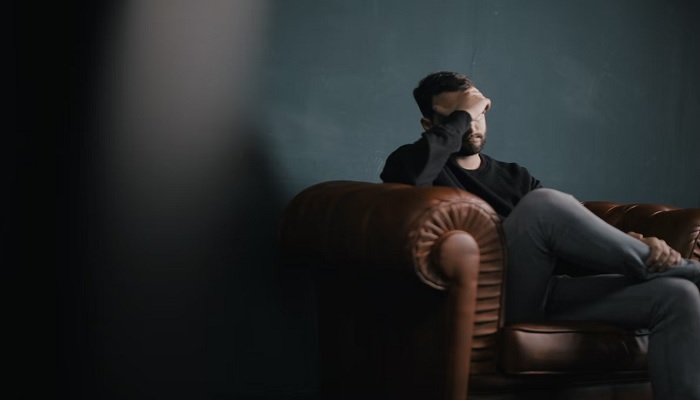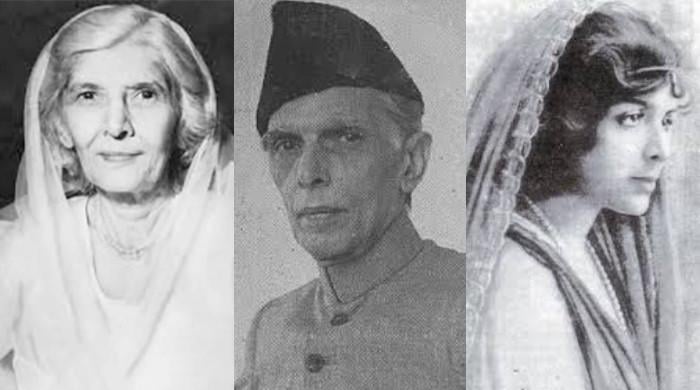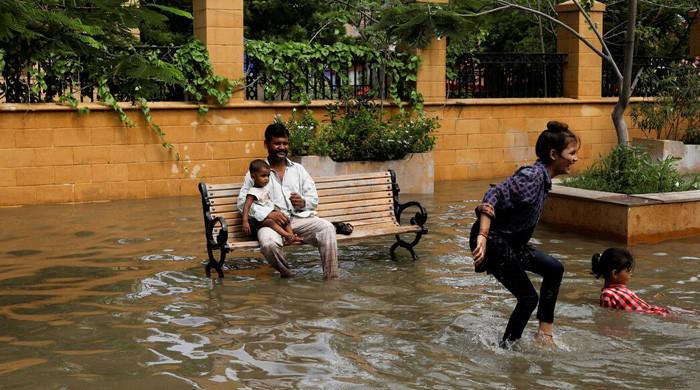Revolting against the word 'pagal'
WHO reports that 24 million Pakistanis are in need of help for mental health issues, while there are only 0.19 psychiatrists per 100,000 people in Pakistan
May 25, 2022

As a mental health advocate, I have heard horrid stories of people’s experiences with psychotherapy in Pakistan.
A lot of people reach out to me on Instagram or elsewhere and criticise me sometimes for promoting therapy when there are a plethora of serious obstacles, including the inability to afford the fee.
So, here I am to point our own hypocrisy out.
I understand and acknowledge people’s concerns. As a student of clinical psychology, I have witnessed avoidant coping, for the lack of a better term, among psychologists. There definitely is negligence towards malpractice.
Conversely, in a country like Pakistan, where people are deprived of their basic needs, it is not surprising that we are apathetic towards such a trivial matter as the scarcity of psychotherapists, let alone good ones.
While there are a lot of problems with a lot of solutions, there is one solution that is very much in our hands: pursuing Psychology as a major.
The basic rule of supply and demand in economics suggests that if the demand of a product or service increases but the supply remains insufficient, the prices hike.
Imagine two loaves of bread and 200 hungry people. In such a scenario, bread is not sold, it is auctioned. Common sense suggests that this also opens doors for incompetence, exploitation, corruption, and malpractice. Similar could be the scenario of psychotherapy in Pakistan.
According to a report by the World Health Organization (WHO), Pakistan had 478 psychologists and 342 psychiatrists in 2010. Add those numbers and it does not even make a total of a thousand mental health practitioners.
Let us outrageously assume that today, 12 years later, we have doubled the number and have 2,000 practitioners.
Compare this supply to the demand in the country.
The WHO reports that 24 million Pakistanis are in need of help for mental health issues. They add that there are only 0.19 psychiatrists per 100,000 people in Pakistan. This is still better than the number The News reported in 2016 with their headline ‘50 million people with mental disorders in Pakistan’ expressing the views of Dr Ayesha Mian, an associate professor and chair of the Department of Psychiatry at the Aga Khan University (AKU).
These statistics, which I so casually state, are quite alarming.
It is also important to note that these are just the reported numbers. With the stigma attached to mental health, we cannot be sure whether these numbers are accurate. If you start a conversation and talk to people about it seriously, you will realise that the actual numbers could be way more than 50 million.
In a country like Pakistan, with instability, poverty, inflation, sexism, human rights issues, and much more, it would not be wrong to assume that every other person is in dire need of counselling, if not clinical psychotherapy.
Hopelessness, which is both a cause and symptom of depression, is inevitably widespread here.
Despite being in desperate need, the country is not producing enough psychologists. One of the major reasons is our disgust for social sciences. We are a parochial society, obsessed with becoming doctors and engineers, compelling our children to strictly pursue only those careers.
Aunties hungrily unfurl their eyes, hold a binocular, and search for “doctor bahus”. Young boys are force-fed the idea that engineering is going to make them the next Bill Gates. They are told that Arts is a subject for academically worthless students who could not make it to STEM fields. Particularly for Psychology, we tell our kids that “those who study psychology become psychos themselves.”
It is not surprising then that you find 10 general physicians on the same street with clinics in small apartment rooms charging as low as Rs200/- but when one finds the courage to look for psychological help, the options are either unaffordable or amateurish or both.
How cockeyed do we have to be to expect things to improve without encouraging young people to pursue Clinical Psychology? Is there anyone else to blame but ourselves in this particular matter?
We must firmly stand up to the irrational traditional ideas associated with academic and professional success. We must allow people to become counsellors, therapists, life coaches, and psychologists.
I am convinced that the first step toward improvement in this area is to revolt against the use of the word “pagal” for both, those who are in need of therapy and those that are playing an active role in the mitigation of mental health issues.
The writer is a member of staff.











